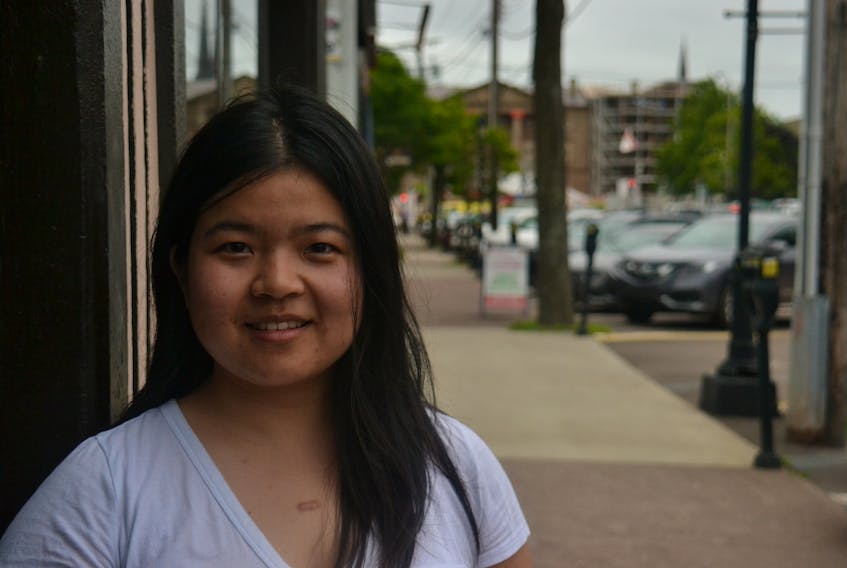Chelsea Feng graduated from UPEI just over a year ago, after completing her bachelor of business administration.
By most standards, the young international student has integrated well into her post-student life. She volunteers, has an active social circle and has secured a job as a bank teller in downtown Charlottetown.
But Feng, who originally arrived from China, has found herself at a crossroads.
"I'm facing the question every international student will face: should I go back home or stay here?" Feng said.
For political leaders in P.E.I., Feng fits the exact profile of potential immigrants the province is hoping to retain. She is young, educated and has Canadian work experience.
Atlantic Canada’s four premiers, as well as seven cabinet ministers of the federal government, will be gathering today in Summerside to discuss the Atlantic Growth Strategy, an initiative aimed at improving the region’s trade, immigration, investment and infrastructure.
High on the agenda of the meetings will be the Atlantic Immigration Pilot, a program which hopes to boost the region’s retention of skilled immigrants, including international students.
During a previous meeting focused on the Atlantic Growth last February, the retention of international students was identified as a priority. Canada’s Immigration Minister Ahmed Hussen announced that Nova Scotia’s Study and Stay program would be expanded throughout the Atlantic region.
The four Atlantic provinces have traditionally lagged behind larger provinces in retention of international graduates, according to University of Western Ontario associate professor Michael Haan.
But Haan’s recent research has shown that international graduates are increasingly remaining in the region.
Haan collected data of tax filings by international students who had arrived sometime in the 10 years before 2013 and 2015. He found that, between 2013 and 2015, the proportion of students who remained in each Atlantic Canadian province after graduating rose substantially. In Prince Edward Island, the retention rate rose from 11 per cent in 2013 to 15.4 per cent in 2015.
"Atlantic Canada is leading the way in this regard where universities and colleges are starting to work with provincial governments to try to facilitate not only attraction of international students but also retention after they're done their studies," Haan said.
Despite the improvements, Haan said the majority of international students still leave the country, despite research that suggests most students want to become Canadian citizens.
For many students, finding work in their field is a big challenge. Establishing important social connections can be difficult.
Daniel Ohaegbu arrived in P.E.I. from Nigeria as a student. He is currently completing an honours thesis in psychology, examining the factors that contribute to the success of African immigrants in P.E.I.
Ohaegbu has struggled to find work in P.E.I. related to his field. He is considering leaving the Island once his studies are complete.
"If I get an opportunity to stay, I'll stay. But first of all, UPEI doesn't have my graduate program, so that may drive me to leave. And also, there are no good job opportunities or actual opportunities here," Ohaegbu said.
"Of those that are, they are kind of hidden. It's structurally hidden, so I don't see it."
In order to improve the retention of international graduates in the region, Haan believes universities and colleges need to begin to talk to students earlier about their plans after graduation. He said the timelines involved in obtaining the work experience needed to apply for permanent residency can be tight.
“Many students think too sequentially,” he said.
“They'll finish their studies and then sort of ask themselves, 'maybe I should try to stay or initiate a work permit.' And then, once your studies lapse, your eligibility becomes a little more muddy,”
UPEI does offers a number of support services to international students through its international office.
Feng also believes universities and colleges should do more to prepare students for their post-graduate life. She believes the support services at UPEI’s international office are good but losing access to them after completing her studies was a stress.
“Especially the first year, when we adapt into the society, we feel like we have to take every responsibility ourselves,” Feng said.
“You feel like you are all by yourself now."
Have your say
Want to wade into the debate?
Write a letter to the editor and email it to [email protected].
Be sure to include a name, address and daytime telephone number where the author can be contacted.
Letters should be no more than 250 words.









